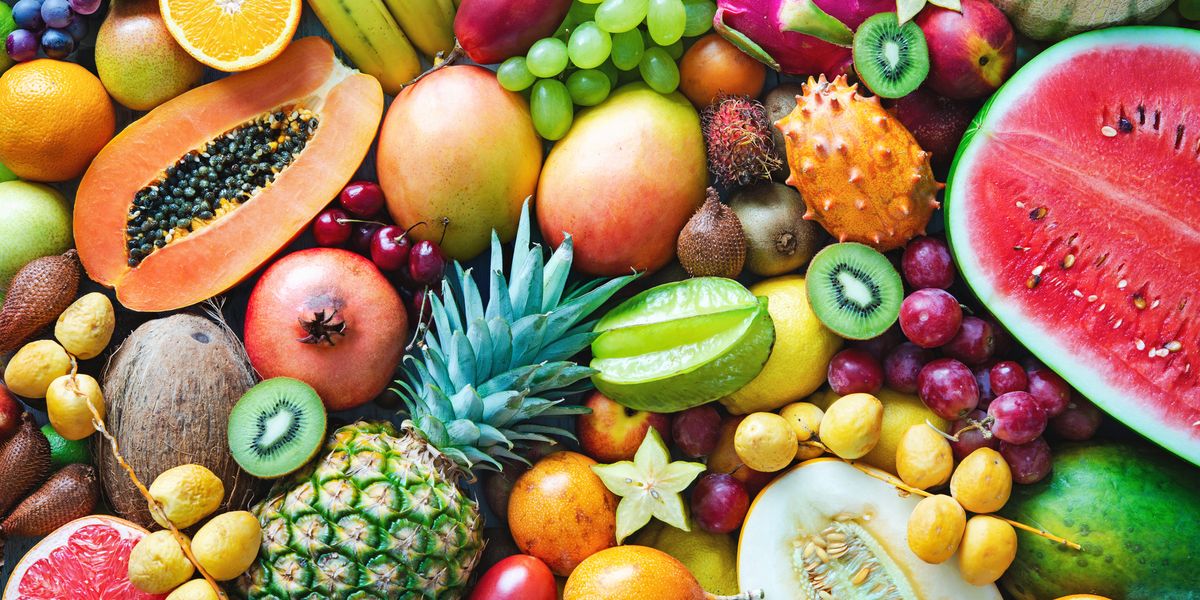Table of Contents
There are many different kinds of fruit globally, each with a distinct combination, tastes, textures, and nutritional advantages. The variety of fruits is astounding, ranging from well-known and extensively consumed to exotic and less prominent. This includes everything from sweet stone ones to tropical treats and tart citrus. In addition, fruits are available in various hues, forms, and sizes to suit multiple palates and culinary preferences.
Fruits offer a lovely sensory experience and are a great source of essential vitamins, minerals, and antioxidants that support general health and well-being. The variety of fruits available in the market gives countless opportunities for colourful and delectable dining experiences, whether they are consumed raw, blended into smoothies, or utilised as ingredients for dishes and garnishes. So, let’s explore the types of fruits so you can use them more often.
An A-Z List Of Many Fruit Varieties
1. Apple

Apples are a popular fruit for their tart-sweet flavour and crisp texture. They provide both taste and health advantages as they are loaded with essential nutrients, including fibre and vitamin C. Apples continue to be beloved fruits that delight and nourish people worldwide, from satisfying snacks to adaptable culinary elements.
2. Apricot
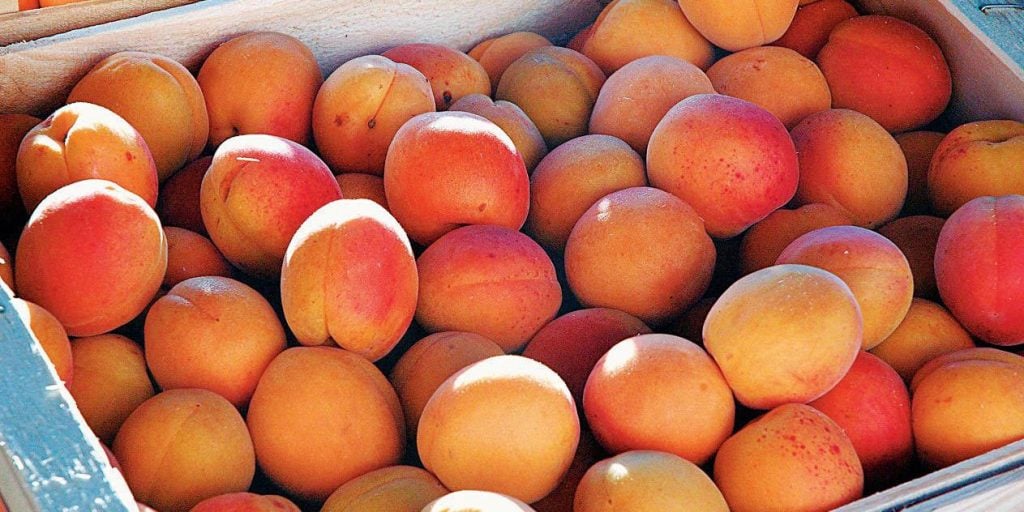
A great treat for the senses, apricots have a vivid orange colour and a silky texture. They are tasty, full of vital nutrients, and burst with a sweet yet tangy flavour. Apricots are rich in vitamins A and C and provide health advantages, promoting good skin and immune systems. Apricots can be consumed fresh, dried, or added to jams and sweets, making them versatile.
3. Avocado

Avocados are a culinary gem because of their rich flavour and creamy texture. Moreover, since they are high in heart-healthy monosaturated fats, they offer a satisfying indulgence. High in fibre, vitamins, and minerals, avocados have many other benefits, such as promoting healthy digestion and rejuvenating the skin.
4. Banana

Do you know of someone who dislikes bananas? Those people are pretty rare! Nevertheless, the banana is the most adored fruit on the globe. They are an excellent source of nourishment and energy. In addition, bananas support heart health and improve digestion since they are rich in potassium, dietary fibre, and vitamin C.
Bananas are also a popular snack choice for individuals of all ages due to their sweetness. In addition, this fruit is versatile in the kitchen and may be used in smoothies, baked dishes, or eaten raw. Even the peels of bananas are helpful in various ways.
5. Blueberry
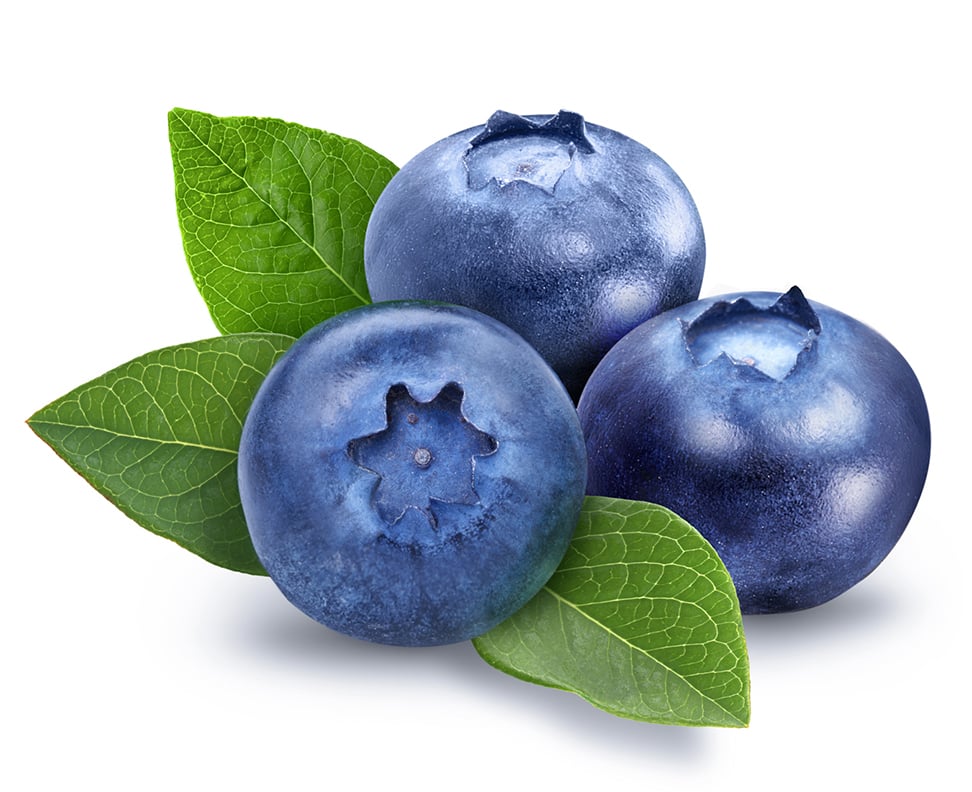
The tiny flavour powerhouses known as blueberries are prized for their sweet-tart taste and vivid blue hue. But, because they are loaded with fibre, vitamins, and antioxidants, they improve general health.
Blueberries are a nutritional powerhouse that supports brain function and fosters healthy ageing. These tasty berries are a great and healthy addition to any diet in whatever form they are eaten.
6. Cantaloupe
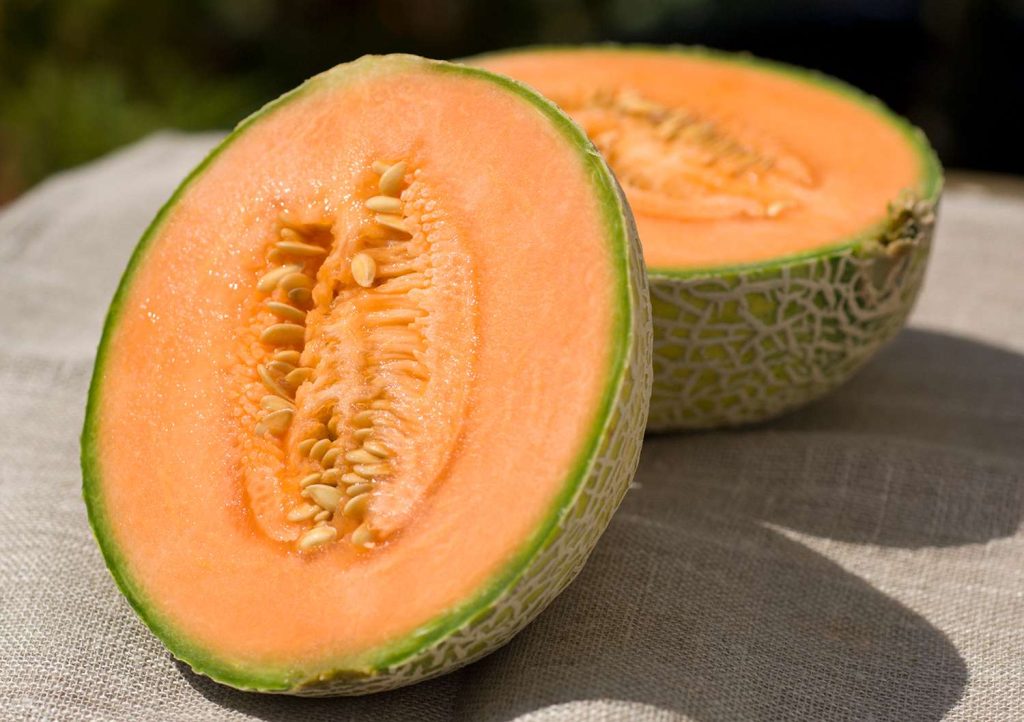
Cantaloupe is a famous summer fruit due to its refreshing and delicious flesh. It supports healthy skin and the immune system by being high in vitamins A, and C. Cantaloupe’s sweet and slightly musky flavour makes it an outstanding complement to fruit salads and smoothies. Its high water content aids in body hydration too. In short, A slice of cooled cantaloupe is always a sheer delight on a sweltering day.
7. Cherry
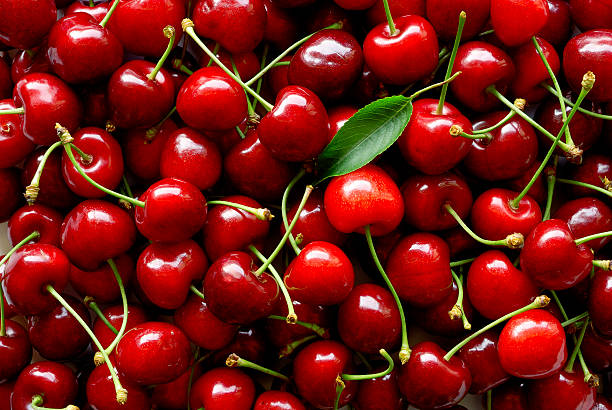
Cherries are a delicious treat with their brilliantly red colour and sweet-tart taste. In addition, they are high in vitamins and antioxidants and provide several health advantages. For example, cherries are proven to help with inflammation and heart health.
Cherries give a burst of juicy sweetness to every mouthful, whether eaten fresh, baked into pies, or added to salads. So, if you are hungry and want something instant – a handful of cherries is a healthy approach to fulfil any appetite.
8. Date

Dates are nature’s caramel! They are sweet and healthy. They provide a natural energy boost and improve digestive health. Dates are a versatile component in both sweet and savoury meals due to their chewy texture.
Dates give an unforgettable taste of enjoyment and sustenance, whether eaten as a snack, packed with almonds, or used in sweets.
9. Dragon fruit
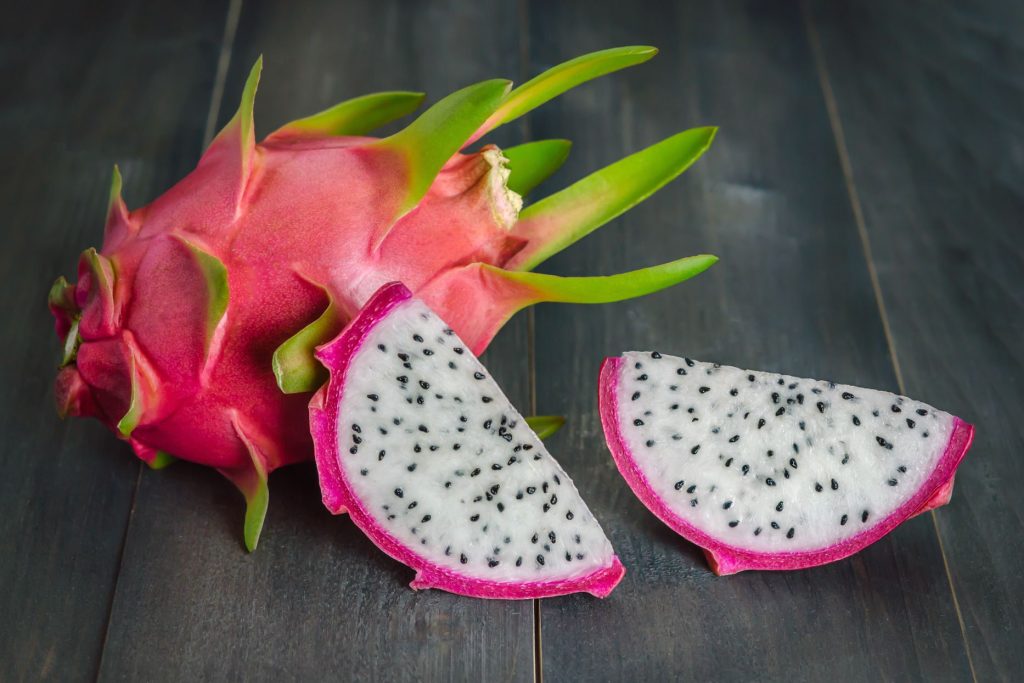
Dragon fruit is a tropical marvel with its brilliant pink or yellow skin and distinct look. It promotes a healthy immune system and digestion by being high in several nutrients. Dragonfruit’s gently sweet, refreshing flavour and crisp texture make it an excellent addition to salads, smoothies, and exotic fruit platters. It is a nutritious and compelling choice due to its eye-catching beauty and health advantages.
10. Elderberry
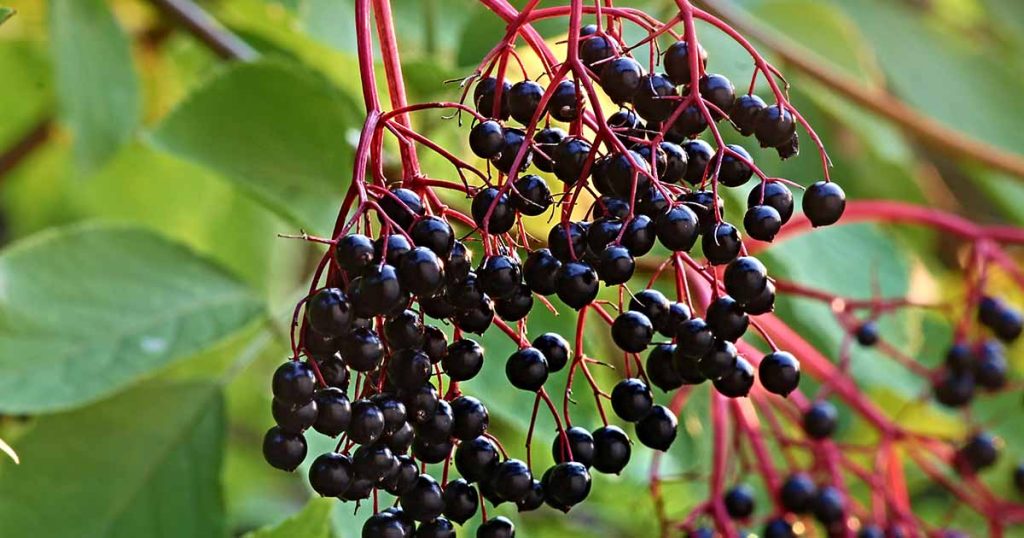
Small but formidable elderberries are a potent source of anti-inflammatory and immune-stimulating antioxidants. They promote general health since they are high in vitamins A, C, and B6. Elderberries are frequently utilised in syrups and supplements because of their reputation for helping to combat cold and flu symptoms.
Elderberries taste tart-sweet and have which purple colour, making them an excellent ingredient in jams, teas, and baked products.
11. Fig
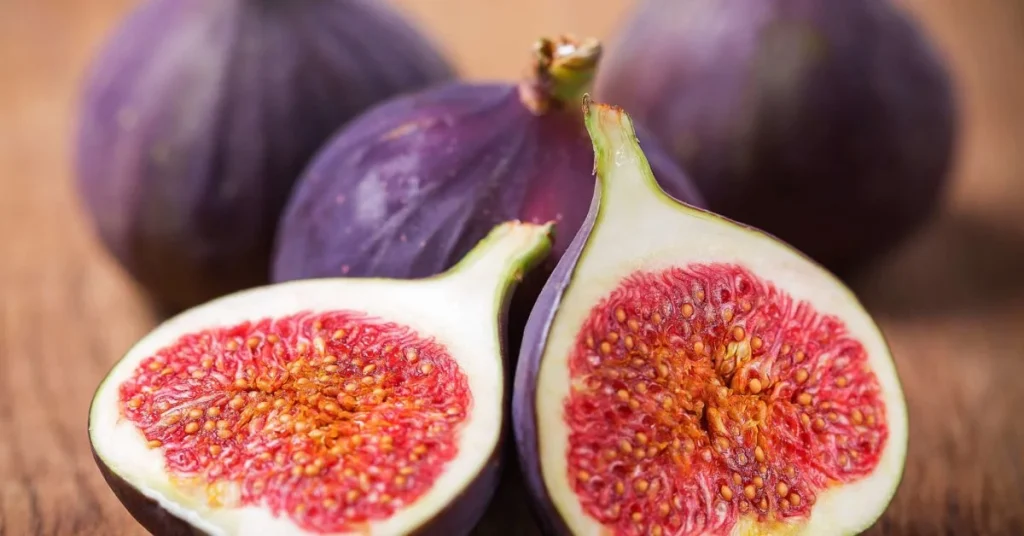
Figs are tasty and wholesome fruit with a sweet and chewy texture. They aid in heart health and digestion and are rich in potassium, fibre, and antioxidants. In addition, figs can potentially decrease blood pressure and are known to lessen inflammation.
These fruits are versatile and can be used in both sweet and savoury meals – all thanks to their deep, earthy flavour. Figs are a pleasant and nutritious treat that may be eaten fresh, dried, or baked into sweets.
12. Grape
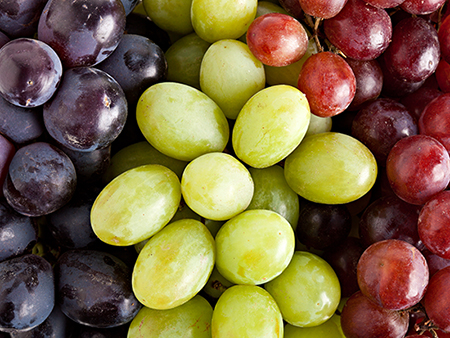
One of nature’s best delights is the juicy sweet-tart flavour of grapes. They support health and well-being as they are rich in vitamins, minerals, and antioxidants. The ability of grapes to enhance heart health and encourage good ageing is well documented.
Grapes provide a blast of flavour and nutrients that are difficult to resist whether they are consumed fresh, as raisins, or in the form of wine. A cluster of grapes is a tasty and wholesome snack for any situation.
13. Guava
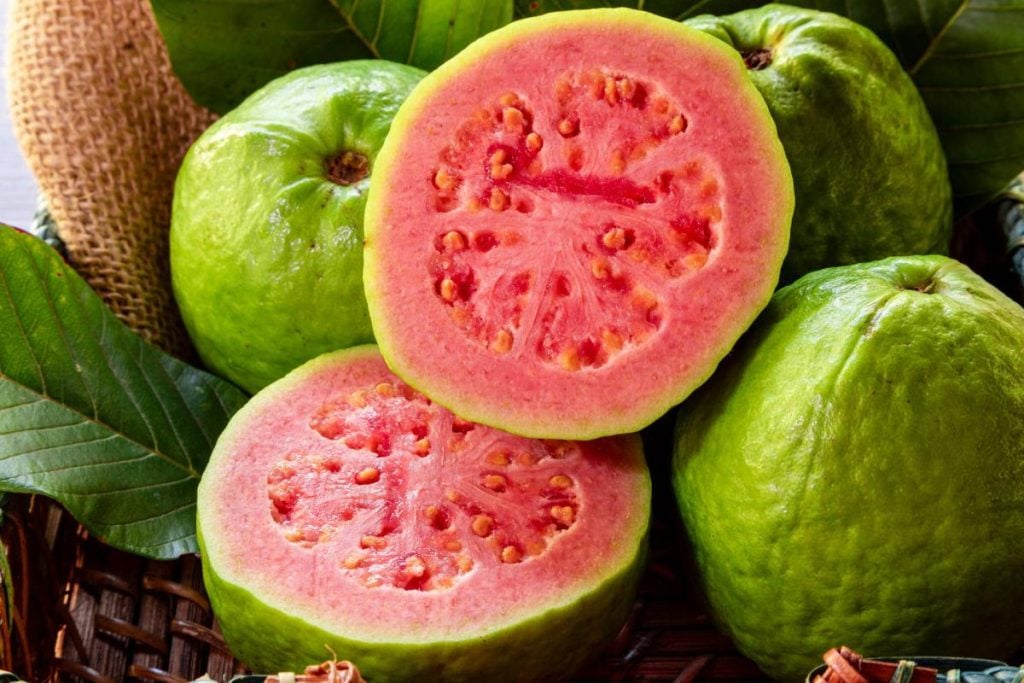
Tropical joy guava is a fruit loaded with taste and health advantages. Being high in vitamin C, this fruit increases immunity and digestion. Guava is a well-liked ingredient for jams, juices, and pastries due to its sweet, tangy flavour and fragrant smell. In addition, it gives culinary creation a tropical flair and a boost of nutrition in whatever way it is served.
14. Honeydew
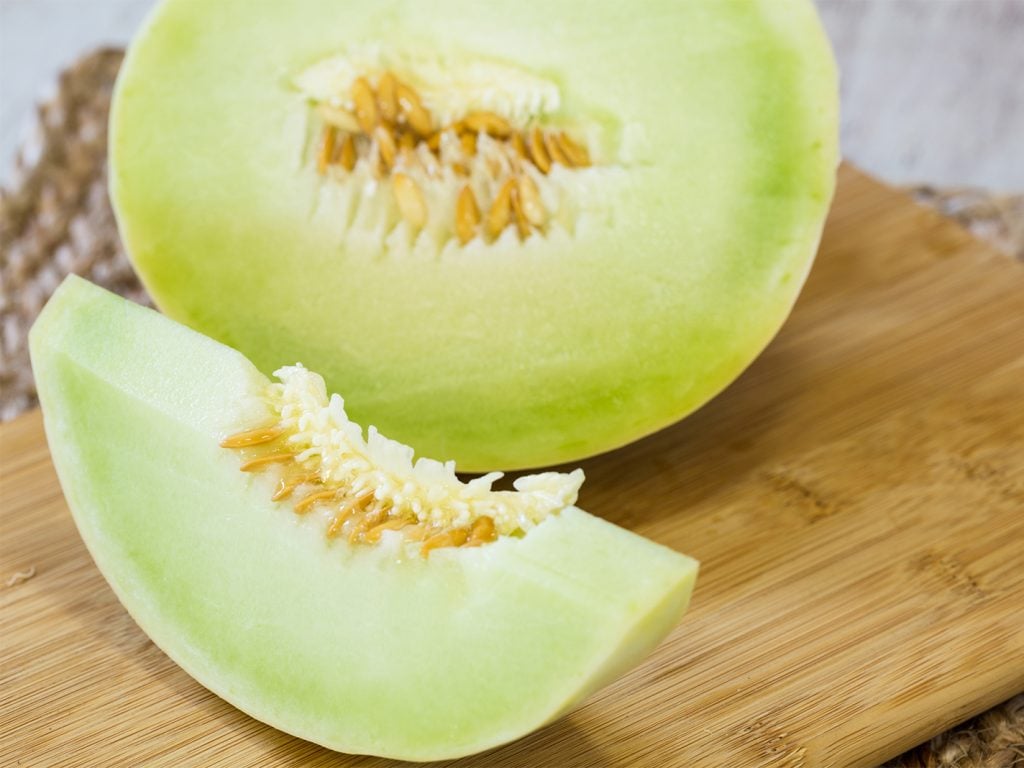
With its light green skin and delicious sweetness, honeydew melon is a pleasant fruit option. It is rich in vitamins C and B6, which help with immune function and energy generation. In addition, the high water content of honeydew makes it hydrating and great for hot summer days.
Honeydew has a mild refreshing flavour that may be eaten independently, in fruit salads, or blended into smoothies.
15. Jackfruit
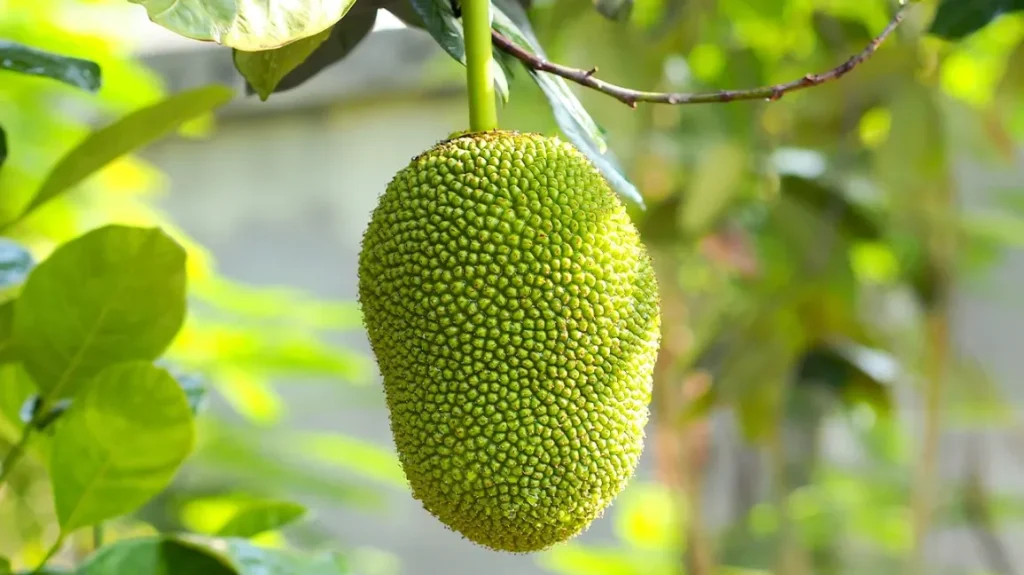
The tropical giant jackfruit is a versatile and healthy fruit. It is high in fibre, vitamins, and minerals and provides several health advantages. The unusual texture and pleasantly sweet jackfruit flavour make it an excellent meat alternative in vegetarian cuisine.
Jackfruit may be used in various dishes, from savoury curries to sweet dishes. It is a unique and delightful fruit alternative due to its ideal size and nutritional composition.
16. Kiwi
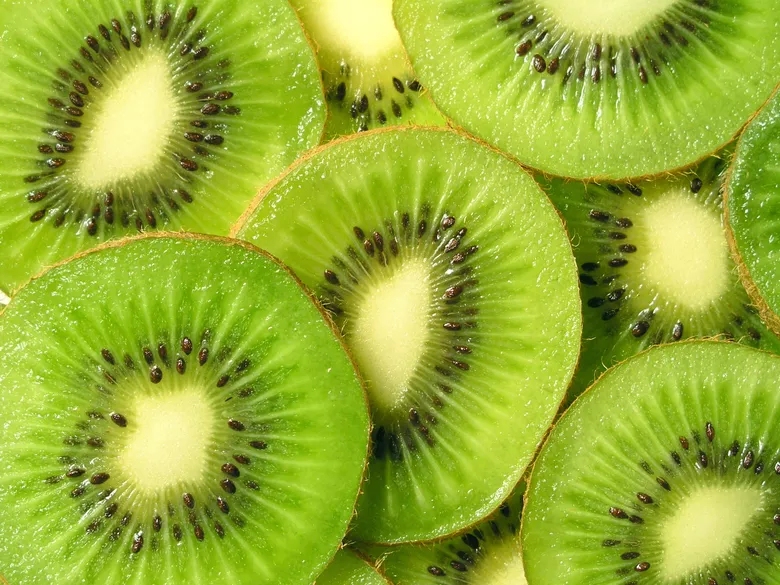
Kiwi is a fuzzy little fruit that is a nutritious powerhouse. It aids immunological health and digestion by being high in vitamin C, antioxidants, and fibre. The brilliant green flesh, studded with tiny black seeds, provides a delectable blend of sweetness and tanginess.
Kiwi gives a tasty rush of flavour and splash of colour to any cuisine, whether eaten alone, spiced atop yoghurt, or added to salads.
17. Lychee
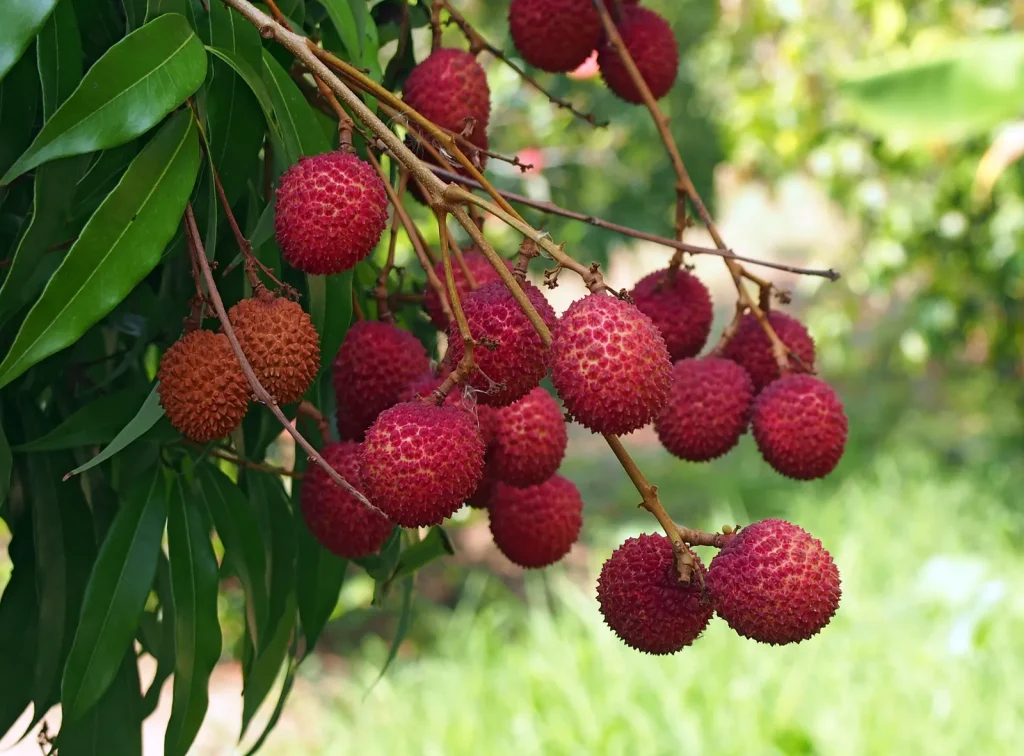
Lychee is a fruit recognised for its unusual flavour and distinctive look. It is high in vitamin C and antioxidants and promotes healthy skin and immunological function. This tropical jewel provides a lovely sensory experience with its flowery and sweet flavour.
Lychee offers a hint of tropical delight to any culinary creation in the form of solid or liquid. So if you are looking for culinary pleasure – lychee is a sureshot!
18. Mango
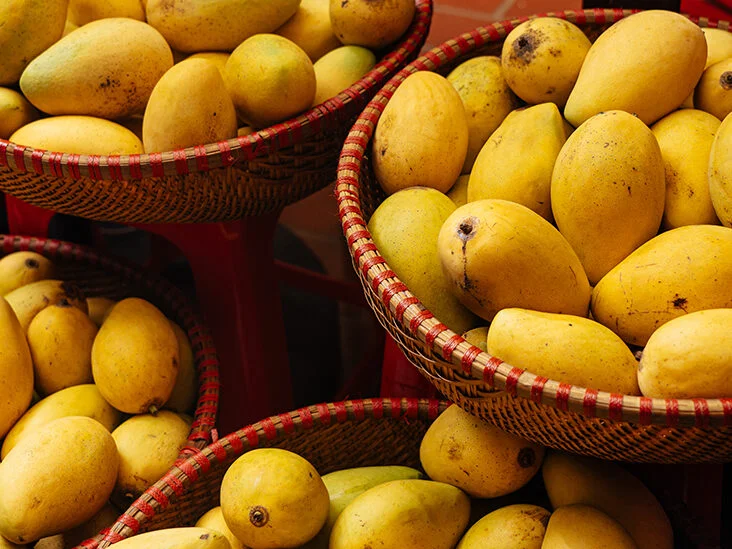
Mango is known as the king of fruits for various reasons. It is a tropical delicacy beloved for its taste and brilliant colour. Mango’s nutrient content helps promote eye health and the immune system. A ripe mango’s delicious juicy flesh is the right balance of sweetness and tanginess. Raw mangos are also utilised in many dishes.
Mangoes give every mouthful a sense of tropical paradise in whatever way it is eaten. Beverages, savoury, sweets, and salads all use mango extensively.
19. Mulberry
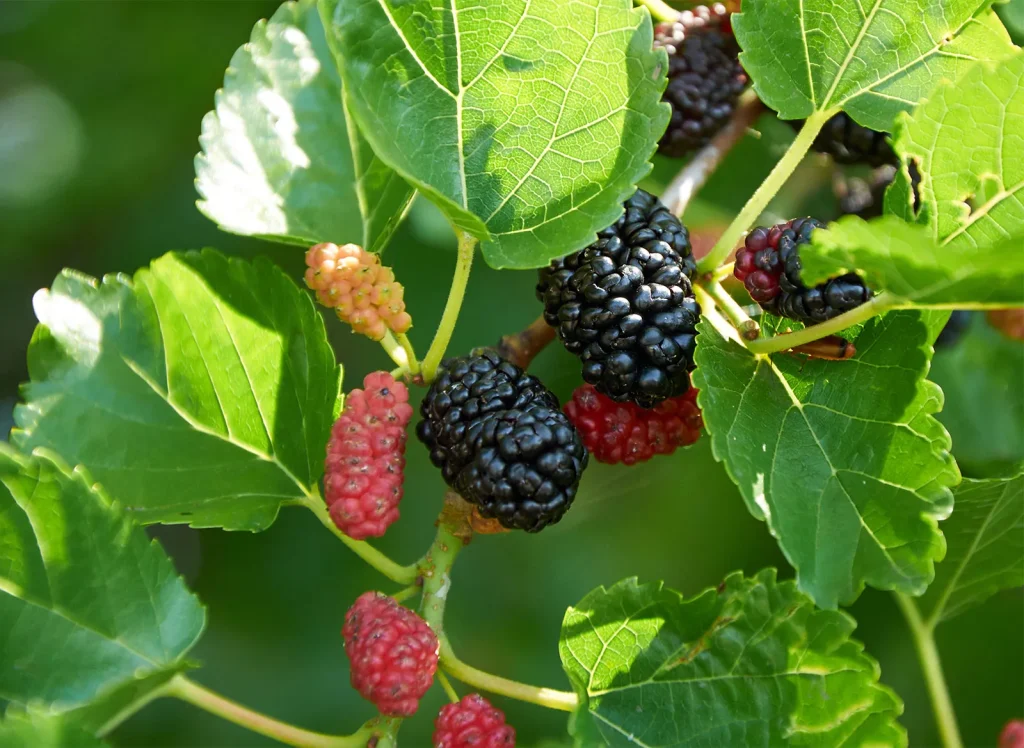
Mulberries are an underappreciated fruit with a sweet flavour and vivid purple colour. They give several health advantages since they are packed with many nutrients.
Mulberries are well-recognised for promoting digestion and cardiovascular health. They are a tasty and wholesome addition to any diet.
20. Nectarine
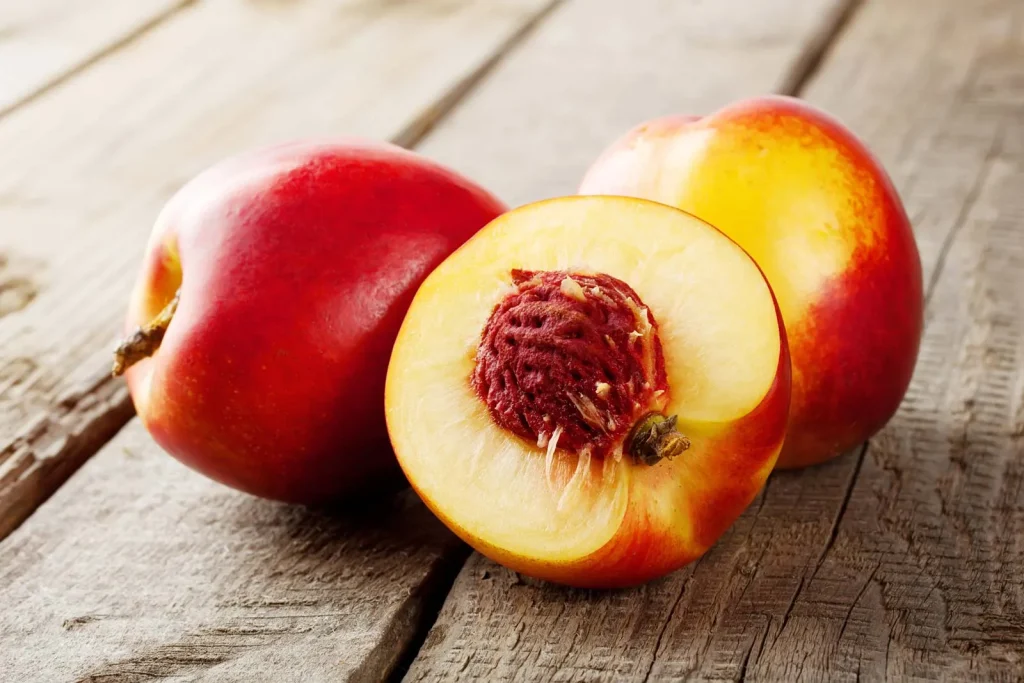
Nectarines – the relatives of peach with silky skin are tasty and nutritious. They are abundant in vitamins A and C, boosting immune functioning and encouraging good skin. A ripe nectarine’s sweet, juicy flesh provides a lovely sensory experience. Nectarines give every meal a flavour boost and a sense of class, whether they are eaten alone, grilled, or added to salads or desserts. Discovering the use of nectarines and its deliciousness is a pleasure for the taste senses.
21. Orange

Oranges, colourful citrus fruits, are a tasty and healthy option. They aid in collagen formation and immunological health since they are rich in vitamin C. Oranges are the preferred snack due to their juicy flesh and vibrant, sweet, tangy flavour.
No matter how consumed, oranges always provide a rich, zesty deliciousness. Beverages, breakfasts, and desserts are some oranges used in recipes.
22. Papaya
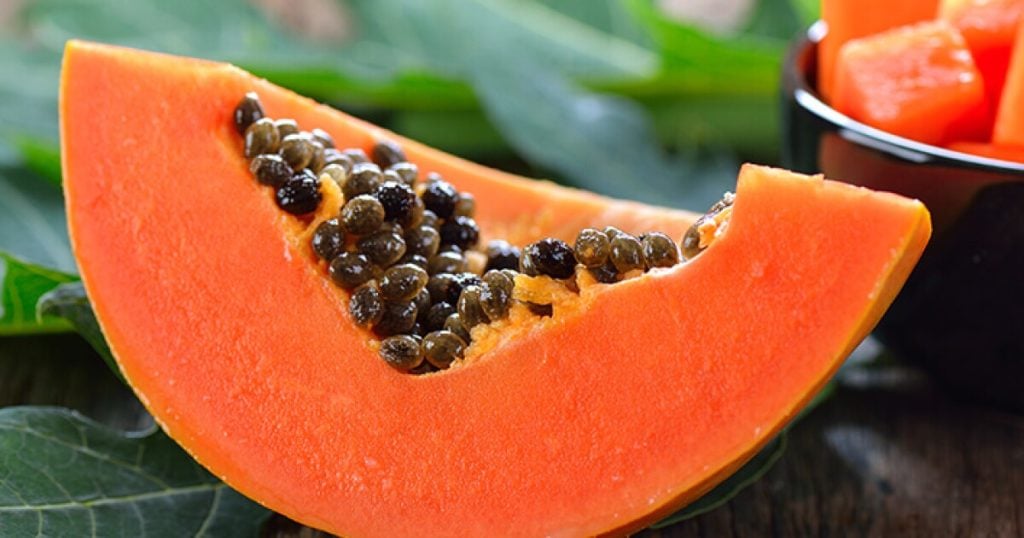
The tropical fruit Papaya is a nutrient-rich option. It boosts immunological health and promotes digestion since it is high in folate, vitamin C and antioxidants. The brilliant orange flesh and black seeds have a distinctive and mouthwatering flavour.
Papaya gives any cuisine a splash of tropical sweetness, whether eaten raw, used in smoothies, or incorporated into salads. This fruit should not be ignored due to its outstanding nutritional profile and unique taste.
23. Passion fruit
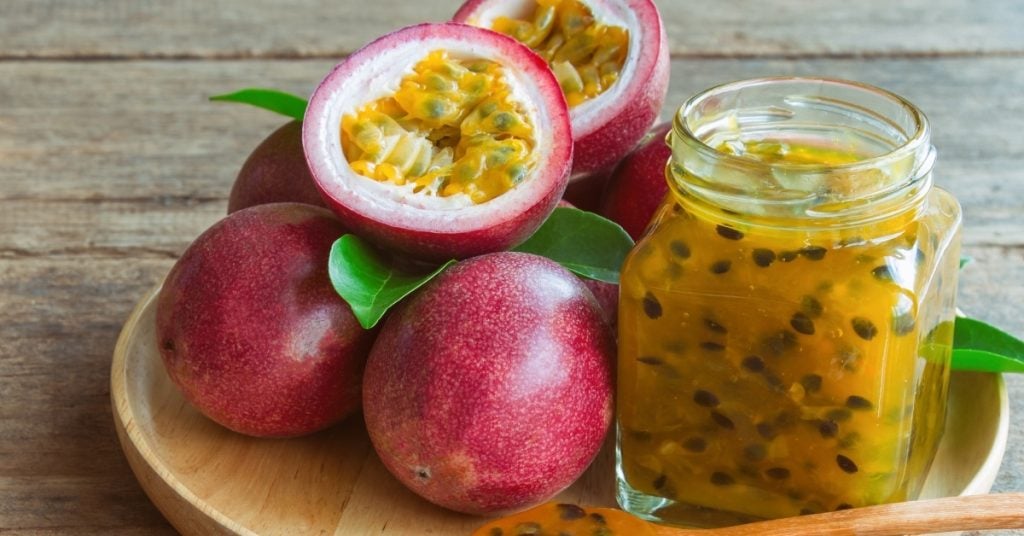
Passionfruit has a unique flavour and wrinkled purple or yellow skin. It boosts healthy skin and immunity. A passionfruit’s acidic and aromatic pulp gives drinks, desserts and sauces a blast of tropical flavour. Additionally, it adds a blast of tropical flavour, a bit of luxury, and a delicious pop of flavour to any dish.
24. Peach
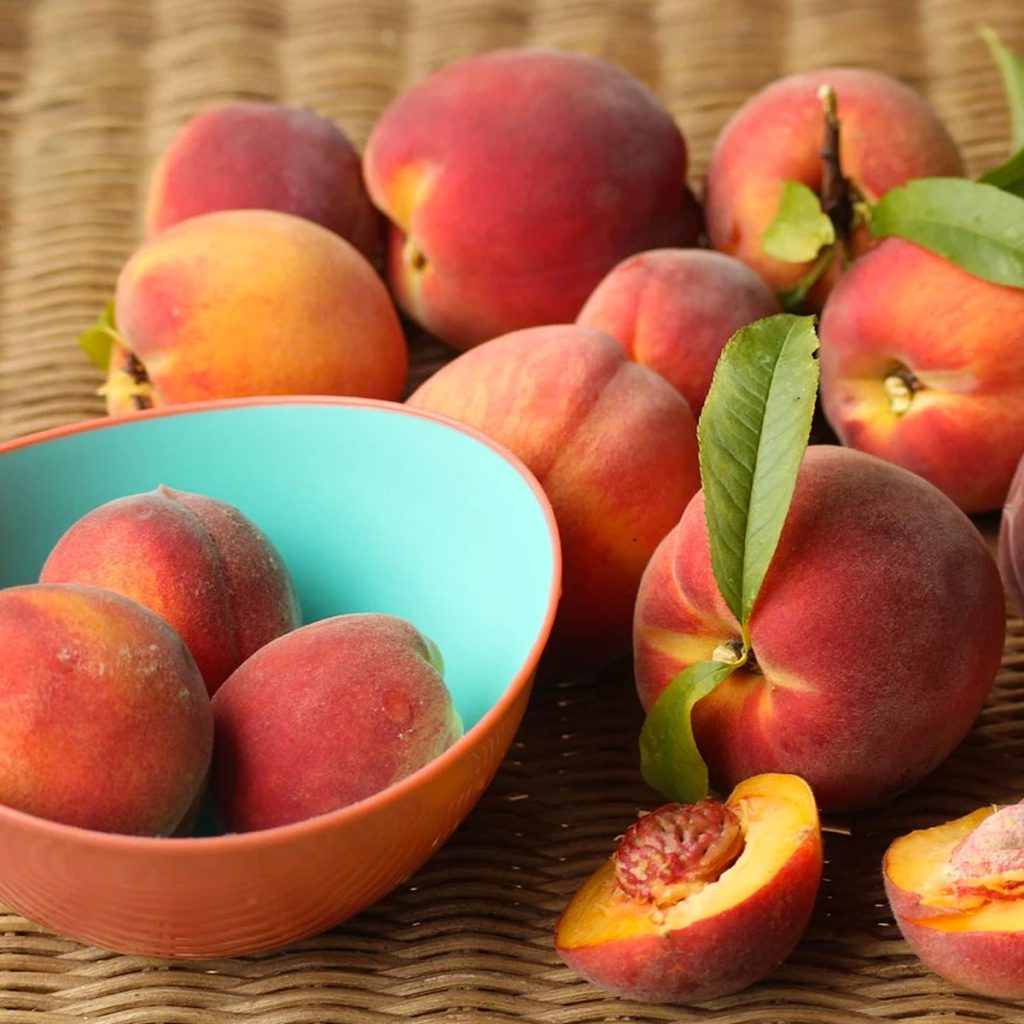
Peaches are adored for their delicate flavour and luscious flesh. They are velvety orbs of sweetness and support immunity and good skin since they are high in vitamins A and C. Peaches are a great snack due to their luscious texture and inherent sweetness.
Peaches bring a taste of summer to every cuisine, whether eaten raw, grilled, or baked. Delving into peaches’ fragrant and juicy world is a great pleasure.
25. Pear
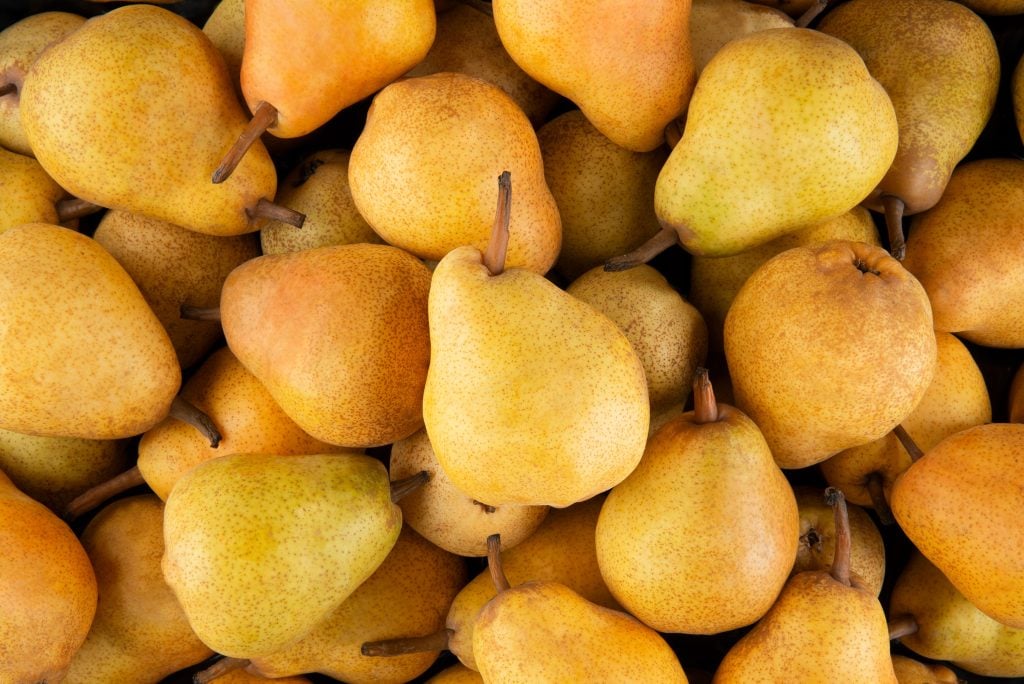
Pears are a classic fruit option because of their crisp texture and delicately sweet flavour. Due to their high dietary fibre content, they support good digestion and offer a delightful crunch. A ripe pear’s silky skin and luscious meat provide a lovely sensory experience. Pears lend a touch of class and natural sweetness to every culinary creation.
26. Pineapple
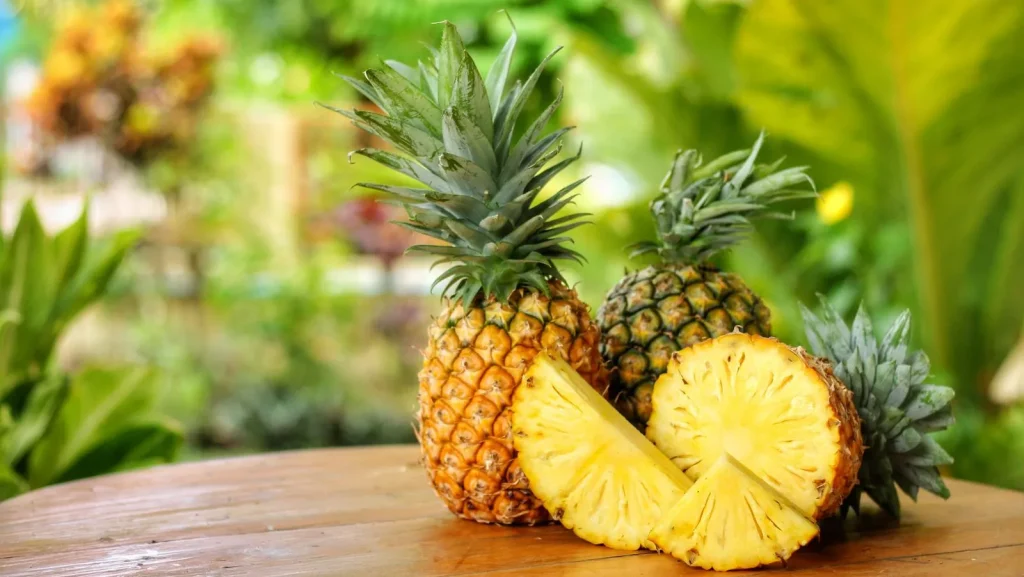
The juicy and delectable pineapple, a tropical fruit with a spiky shell, is a great option. It boosts the immune system and promotes digestion since it contains vitamin C and bromelain. Pineapples are a common fruit option because of their sweet and sour flavour and fibrous texture. It is utilised in various cuisines across the globe.
27. Plum
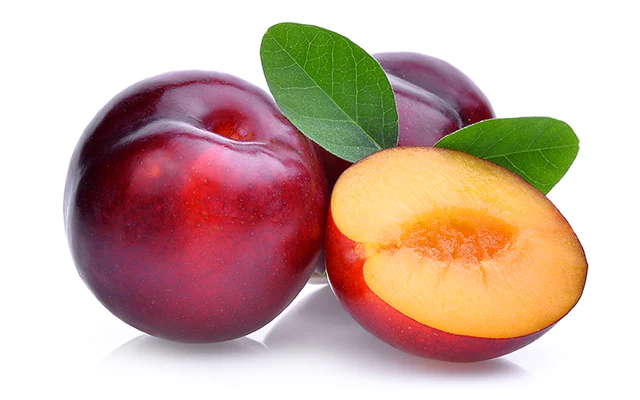
Plums are a delicious and healthy fruit with silky skin and luscious meat. They are high in minerals and vitamins, thereby providing several health advantages. Plums come in a range of colours and flavours, ranging from the vivid Red Santa Rosa to deep purple-black diamond.
Plums deliver a blast of sweet-tart flavour that is both gratifying and invigorating. You shall go on a sensory and nutritive voyage when you eat the plum.
28. Pomegranate
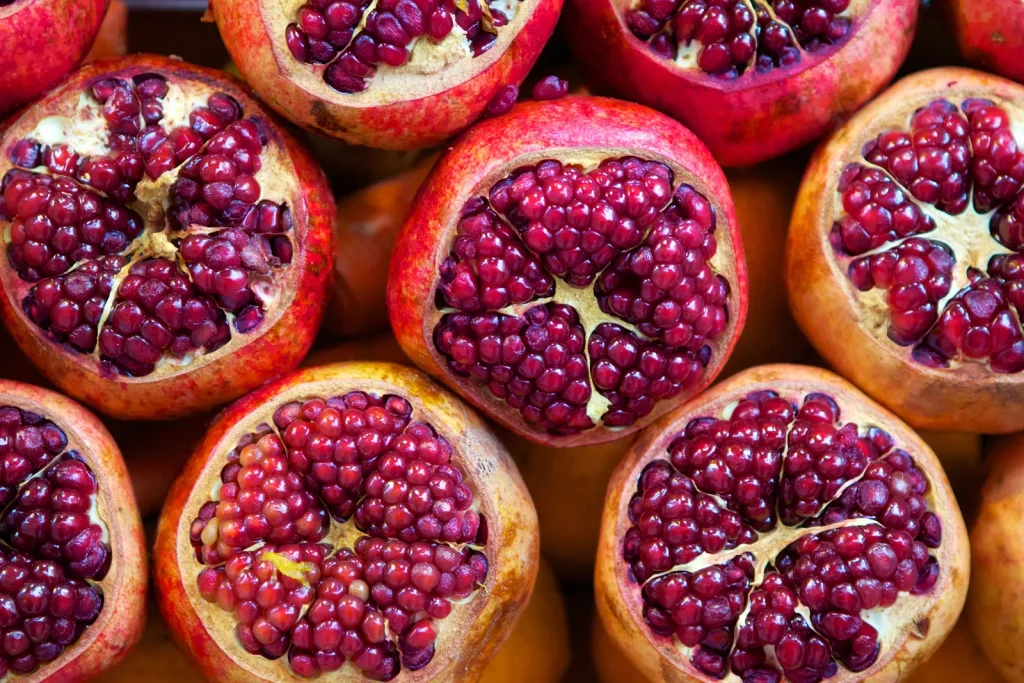
The natural gem pomegranate is a tasty and nutrient-dense fruit. Its juicy arils provide a delicious blend of sweet and tangy flavour. These fruits enhance general health and well-being as they are high in nutrients.
Pomegranates add a blast of colourful flavour and nutrients to the table, whether eaten fresh, juiced, or utilised in various culinary dishes.
29. Raspberry
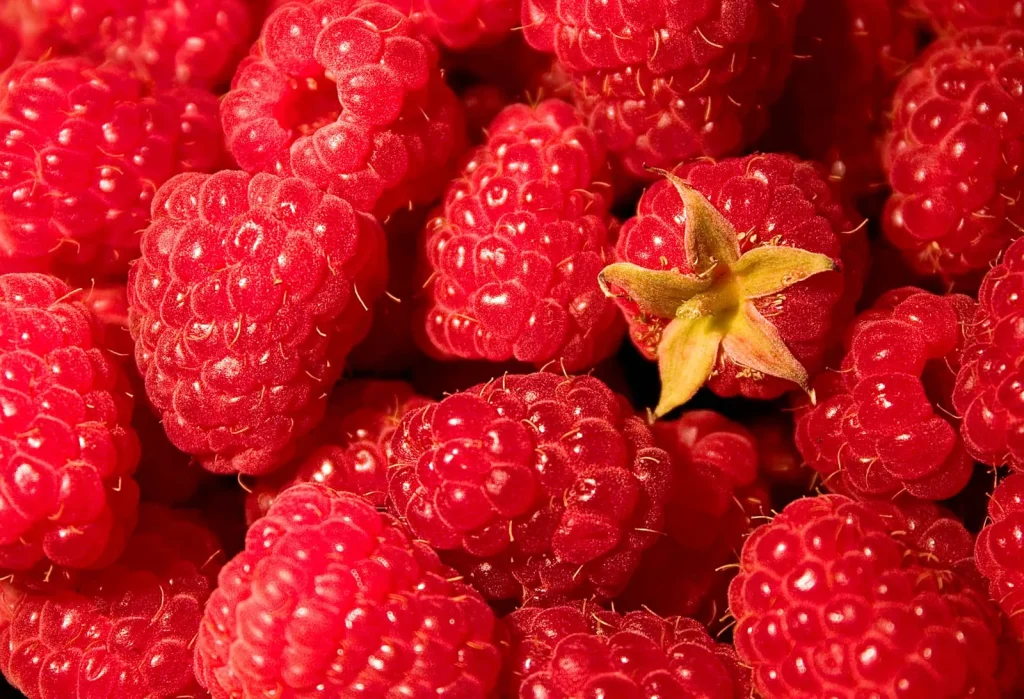
Raspberries are a blast of tanginess and sweetness. They support immunity and digestion since they are high in fibre and antioxidants. Raspberries are a delicious addition to sweets, salads, and smoothies due to their brilliantly red colour and juicy texture. In short, a bunch of raspberries is like a piece of nature’s candy.
30. Strawberry
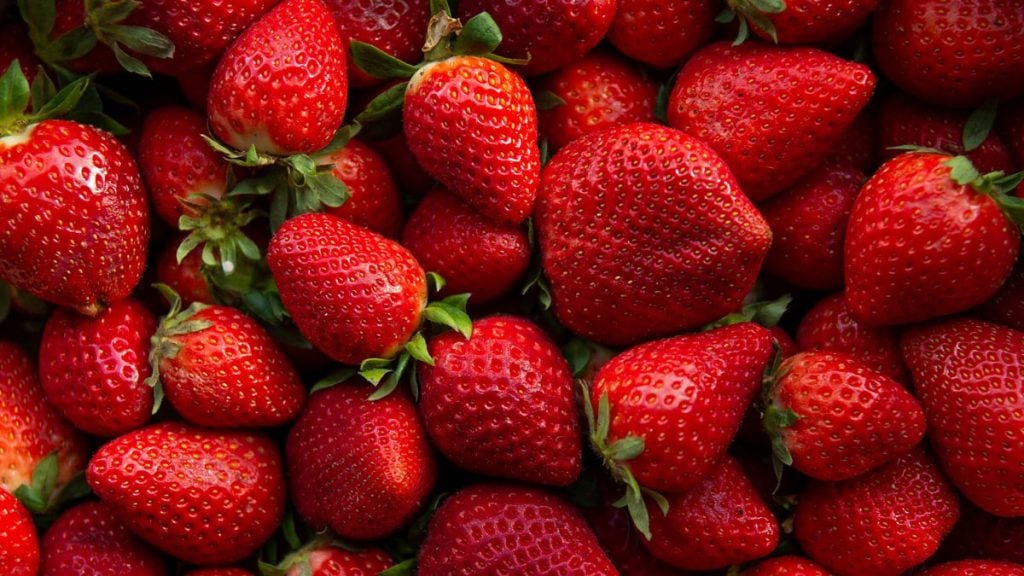
Strawberries, the iconic summer fruit, are a delectable sensory feast. They are high in vitamin C and antioxidants and have a sweet flavour and brilliant red colour. Strawberry is a delightful and juicy delicacy that may be eaten fresh, in desserts, or as a topping. A ripe strawberry is like a taste of summer happiness in one mouthful.
31. Tangerine
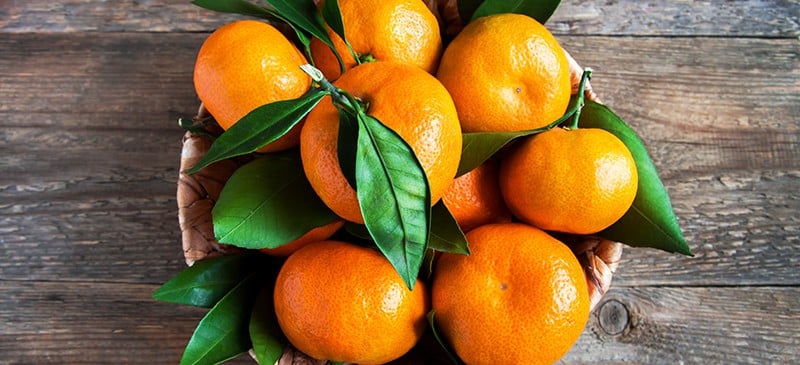
Tangerines resemble oranges but are a lot different. These little citrus miracles are a zesty delight. They enhance immunological health and promote beautiful skin since they are rich in vitamin C. Tangerines are delightful snacks with their vibrant orange colour and sweet-tart flavour. Peeling back the thin peel reveals juicy segments that give each bite a spicy and invigorating taste.
32. Watermelon
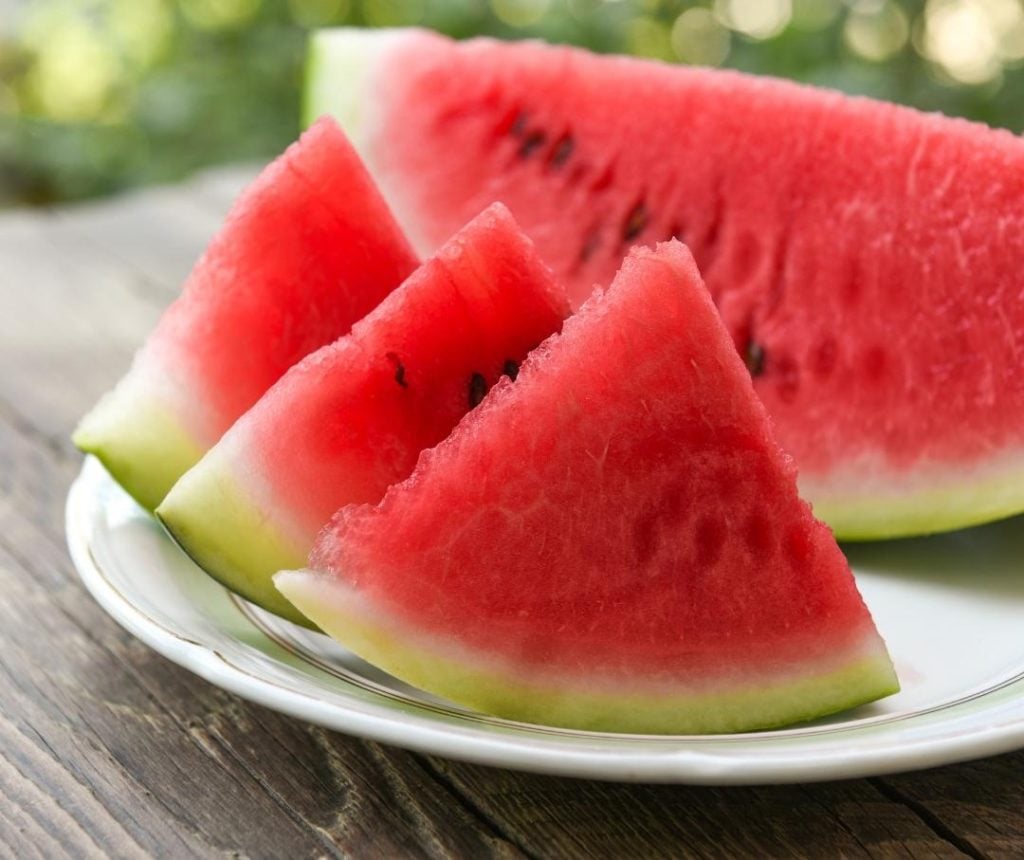
The archetypal summer fruit watermelon is a hydrating and refreshing treat. Its high water content quenches thirst and keeps the body hydrated. Watermelon is a popular summer delicacy due to its brilliant red flesh and delicious juiciness. This fruit, whether eaten in slices, juice or salads, adds a blast of juicy sweetness to every bit.
Final Thoughts
The world of fruits is a rich, varied, and mouthwatering resource. Every fruit, from the well-known and comfortable apple to the exotic dragon fruit, has a unique flavour, texture, smell, and nutritional benefits.
We may experience the glories of nature’s wealth while delighting in delectable flavours by exploring the wide variety of fruit kinds. So, enjoy the deliciousness that fruits bring to our palate and plates and celebrate their abundance and how they nurture the body and soul.
Frequently Asked Questions
Which Fruits Are Abundant with Antioxidants?
Berries are riches source of antioxidants. However, raspberries, strawberries, and blueberries remain at the top.
Which Fruits Are Suitable for Juicing?
Fruits rich in high water content are appropriate for juicing. Oranges, pomegranates, grapes, and watermelons are popular choices for juicing.
Why Are Fruits Important in the Diet?
Fruits are essential in the diet because they contain minerals, fibre, vitamins, and antioxidants. As a result, they contribute to overall health and well-being while supporting the immune system and digestion. Additionally, fruits help reduce the risk of chronic diseases when consumed daily.
Which Fruits Have the Maximum Medicinal Property?
No single fruit can be termed as having high medicinal properties, as different fruits offer different health benefits. However, berries are often considered superior due to their high antioxidants and beneficial compounds for overall health.

